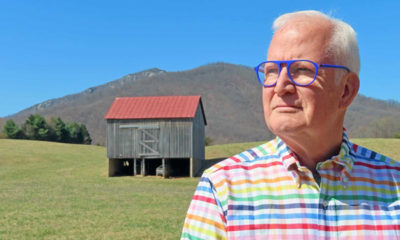Obituary
Johnny Randolph Hunt dies at 72
Known for his many years at the U.S. Fish and Wildlife Service

Johnny Randolph Hunt passed away quietly on May 27, 2024, after a well-fought battle against late-stage metastatic prostate cancer that had spread to his bones. He was 72.
Hunt was well known for his many years at the U.S. Fish and Wildlife Service in Washington, D.C., and for his artistic talents, where he used recycled junk mail to make whimsical masks and wall hangings known as Peculiars.
In high school, he was a top-performing cross-country runner, and he frequented Shenandoah National Park and the Blue Ridge Parkway for long hikes and camping trips. Hunt was born on Feb. 15, 1952 to parents Janette Simshauser Hunt of Amherst, N.Y., and Melvin Hunt of Covesville, Va., both now deceased. He is survived by his husband of 45 years, Jeffrey David Miller and three sisters, Motanna Cason, Joyce Brown, and Shirley Shiflett, and one brother, Rocky Hunt, and a host of other relatives.
A celebration of life was held on Saturday, June 15. There will be follow-on services in Kinsale, Va., Charlottesville, Va., and Amherst, N.Y., which will be announced later. His favorite charities were Wounded Warriors, the Nature Conservancy, the National Wildlife Federation, Saint Jude’s Children’s Hospital, and Habitat for Humanity. Donations in honor of Johnny should be directed to your charities of choice.
Obituary
Award-winning poet, Blade contributor Kathi Wolfe dies
‘Tireless in her pursuit of justice for queer disabled people’
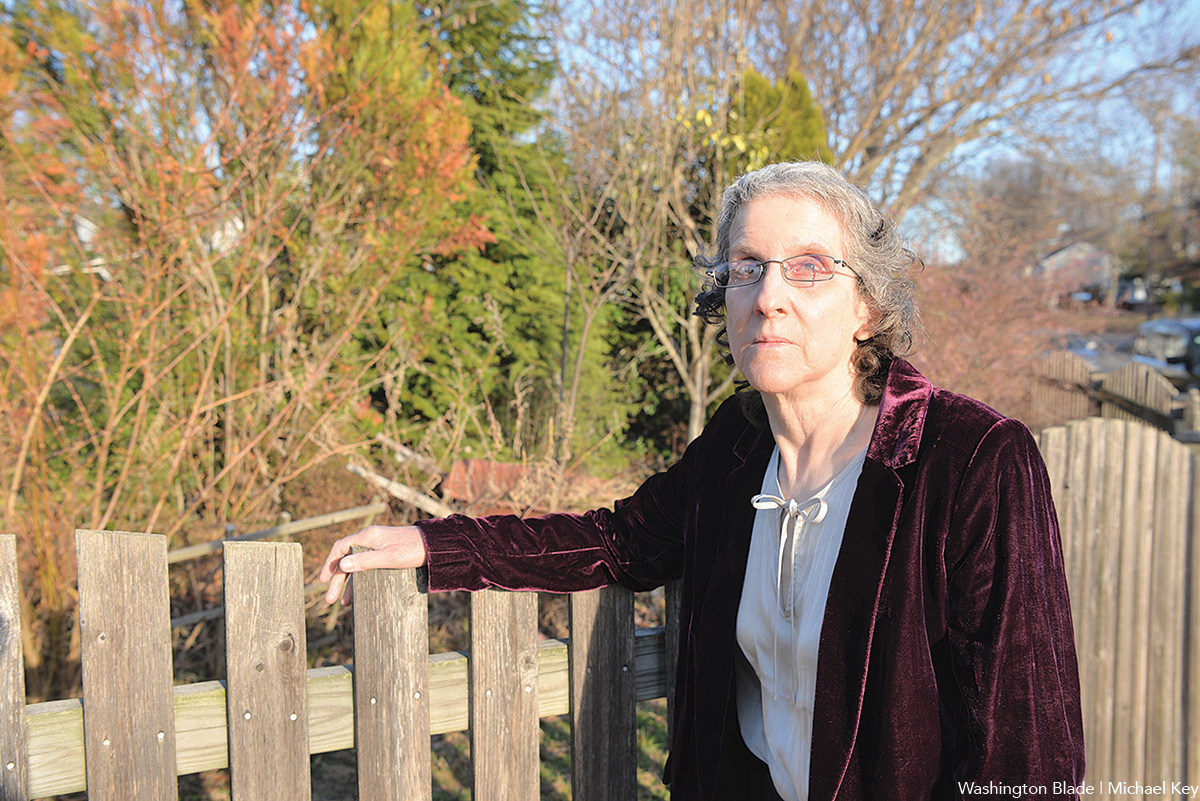
Longtime Washington Blade contributor Kathi Wolfe, an award-winning journalist and nationally recognized poet, died June 22 after a short battle with cancer. She was 71.
Wolfe worked in the early 2000s as a Blade news reporter and later left to pursue her interests in poetry. She remained a regular freelance contributor for more than 20 years; her favorite subjects to cover were book reviews and profiling prominent figures who are queer and disabled. Wolfe was honored last year by the D.C. chapter of the Society of Professional Journalists with a Dateline Award for her story, “Queer, Crip and Here,” a profile of Caitlin Hernandez, a queer writer and teacher who is blind. Wolfe was also legally blind and her disability motivated her to use her platforms to highlight the important contributions of disabled LGBTQ people.
Just a week ago, Wolfe was honored again by the SPJ as a finalist in the newspaper features category for a piece titled, “Meet one of the most powerful disabled people on the planet,” a profile of queer author Eddie Ndopu.
Wolfe was born in Bridgeton, N.J., to Nancy and Fred Wolfe; her brother is David Wolfe. She attended Yale University where she earned a degree in divinity. She described her parents as Jewish-agnostic and said they loved Pope John 23 and Vatican II. “Now, I’m a hopeful agnostic,” she once said. “I pray to God though I’m often angry or disbelieving of Her.”
Wolfe came to Washington in 1991 to work at an advocacy center for people with disabilities. Her partner Anne died of cancer at age 46, a devastating event that inspired Wolfe to write again. She took classes at a writer’s center in Bethesda and started going to open mics. Since then, she always identified as a poet.
“I like the concision and precision of poetry,” she once said. “Whether you write in form or free verse, writing poems enables you to tell stories. … A good poet in a one-page poem or even a haiku can do what a fab novelist does in a 500-page novel.”
A prolific writer, she published multiple books of poetry, including “The Porpoise in the Pink Alcove,” which won the 2024 William Meredith Book Award for Poetry; and “Love and Kumquats,” her fourth book published in 2019 that features 80 of her works.
One review of “Porpoise” on Amazon notes, “Her poems read like the screenplay of a life which has faced many challenges as a gay person in a homophobic world. Kathi faces these challenges with humor and courage, including all the details of a life that make us aware of who she is.”
“My work has a queer sensibility,” Wolfe told the Blade in 2019. “It’s what informs the pain, humor — being an outsider, passion for justice — that permeates many of my poems.” When asked what professional achievement made her most proud, she replied, “A woman who was blind and queer emailed me. She said after reading my poetry, she felt better able to deal with homophobia and ableism.”
Wolfe lived in Falls Church, Va., and enjoyed following the Nats and watching old Hollywood movies (“Bette and Joan forever!,” she used to say) in her free time.
When asked why she lived in the D.C. area for so long, Wolfe told the Blade, “People in the D.C. area are from all over the world. There are museums, restaurants with any type of food you can think of. We have the cherry blossoms!”
“The Blade will not be the same without her contributions, unique insights, and wit,” said Blade editor Kevin Naff, who edited her work for more than 20 years. “I will miss Kathi’s regular presence in my inbox, constantly pitching ideas for stories and op-eds. She was a hard worker and tireless in her pursuit of justice for queer people and visibility for disabled LGBTQ people.”
A virtual celebration of life is planned for Saturday, July 6 at 5 p.m. Attendees are encouraged to share a poem or story about Wolfe’s life via Zoom here.
Obituary
Bruce Bastian, beloved LGBTQ philanthropist, WordPerfect co-founder, dies at 76
Pioneering Utah software expert credited with supporting LGBTQ rights, performing arts

Bruce Bastian, a successful Utah businessman and pioneering computer software developer who co-founded the word processing company WordPerfect before becoming a beloved philanthropist who donated millions of dollars to LGBTQ rights causes and the performing arts, passed away on June 16, according to an announcement by the LGBTQ organization Equality Utah.
“No individual has had a greater impact on the lives of LGBTQ Utahns,” Fox 13 TV News of Salt Lake City quoted Equality Utah Executive Director Troy Williams as saying. “Every success our community has achieved over the past three decades can be traced directly back to Bruce,” Williams was quoted as saying.
Fox 13 reported that Bastian co-created a word-processing program which later became WordPerfect as a graduate student at Brigham Young University with co-founder Alan Ashton, who was a Brigham Young computer science professor. The two developed the software under contract with the city of Orem, Utah, but they retained ownership of it, according to Fox 13.
“Bruce was definitely a legend, running one of the most successful companies, and an out and proud gay individual,” his friend David Parkinson said in a 2022 interview with Equality Utah, Fox 13 reports. “Not only does he give his money, but he gives his time, he gives his connections, he gives his knowledge, to help change Utah,” Parkinson told Equality Utah, of which Bastian was a founding member.
Fox 13 reports that among the organizations to which Bastian was a generous supporter and financial donor were the Utah AIDS Foundation, Utah’s Plan-B Theatre, the Utah Symphony and Opera and Ballet West, and the University of Utah.
A Wikipedia article on Bastian’s life and career says that in 2003, he donated more than $1 million to the Human Rights Campaign, the nation’s largest LGBTQ advocacy organization. It says he donated $1.7 million in 1997 for the renovation of the University of Utah’s Kingsbury Hall, and in 2000 donated $1.3 million to support the university’s purchase of 55 Steinway pianos. The article says he also supported the university’s LGBTQ Resource Center on campus.
Both Fox 13 and Wikipedia report that in 2010 President Barack Obama appointed Bastian to the Presidential Advisory Committee of the Arts.
Wikipedia, citing the OUTWORDS archive, reports that Bastian was born March 23, 1948, in Twin Falls, Idaho, was raised as a member of the Church of Jesus Christ of Latter-Day Saints, and served as a missionary in Italy. It says he received a bachelor’s degree in music and a master’s degree in computer science from Brigham Young University. As an undergraduate, he served as director of the university’s Cougar Marching Band, the article says.
It says Bastian married Melanie Laycock in 1976 and the couple had four sons before they divorced in 1993. It says Bastian later married Clint Ford.
“Bruce’s impact reached far beyond Utah, as a leading supporter of the national marriage equality movement, and a major benefactor and board member of the Human Rights Campaign,” the Equality Utah statement says, as reported by Fox 13. “He has been a rock and pillar for all of us,” the statement continues.
“Our community owes more to Bruce than we can possibly express,” it says. “We send our love, gratitude and condolences to Bruce’s wonderful husband Clint, and his friends and children.”
In a statement released on Monday, HRC said Bastian joined the HRC board in 2003. It says the following year he joined fellow HRC board member Julie Johnson to serve as co-chair of “the board’s successful effort to help defeat the Federal Marriage Amendment, a proposed amendment to the constitution that would have specified marriage as legal only between a man and a woman.”
The HRC statement says Bastian passed away peacefully “surrounded by his four sons, his husband, Clint Ford, and friends and other family members.” The HRC and Equality Utah statements did not disclose a cause of death.
“We are devastated to hear of the passing of Bruce Bastian, whose legacy will have an undeniably profound impact on the LGBTQ+ community for decades to come,” said HRC President Kelley Robinson in the HRC statement. “Bruce was in this fight, working at every level of politics and advocacy, for over four decades,” Robinson said.
“He traveled all across this country on HRC’s behalf and worked tirelessly to help build an inclusive organization where more people could be a part of this work,” she said. ‘Bruce stood up for every one of us and uplifted the beautiful diversity of our community,” Robinson said. “It’s the kind of legacy we should all be proud to propel forward.”
The HRC statement says that in addition to his four sons, Bastian is survived by 14 grandchildren, two sisters, a brother, and numerous other extended family members.
Obituary
Pioneering transgender computer scientist Lynn Conway dies at 86
Early supercomputers pioneer fired after she transitioned
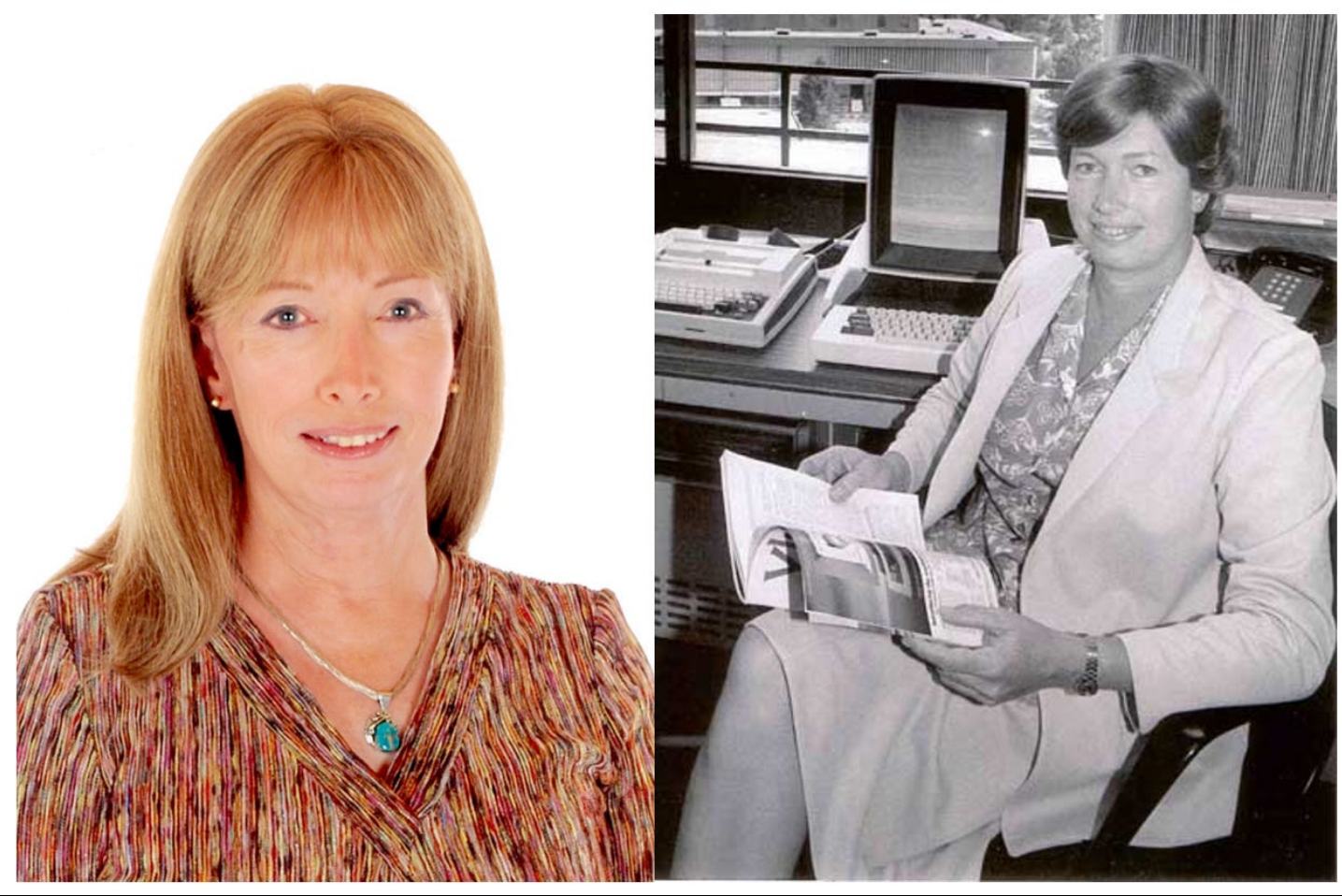
BY ERIN REED | Tuesday, news broke that transgender woman and computer pioneer Lynn Conway passed away at the age of 86. Her story is nothing short of remarkable.
Conway helped pioneer early supercomputers at IBM but was fired after she transitioned. She went “stealth” and had to rebuild her career from the ground up, starting as a contract programmer at Xerox with “no experience.”
Then, she did it all over again, pioneering VLSI — a groundbreaking technology that allowed for microchips to be made small enough to fit in your pocket, paving the way for smartphones and personal computers. In 1999, she broke stealth, becoming an outspoken advocate for transgender people.
Conway first attempted to transition at MIT in 1957 at 19-years-old. At the time, the environment was not accepting enough for trans people to do so. She would have faced enormous barriers to medical transition, as few doctors were knowledgeable enough to prescribe hormone therapy a the time. Like many trans people seeing enormous barriers to care, she spent the following years closeted.
Eventually, she was hired by IBM where she helped develop the world’s fastest supercomputer at the time on the Advanced Computing System (ACS) project. The computer would become the first to use a “superscalar” design, which made it capable of performing several tasks at once, dramatically improving its performance and making it much faster than previous computers. Despite her pivotal role in the project, she was fired when she informed her employer that she wanted to transition.
What she did next is nothing short of remarkable. Realizing that as an openly trans woman in 1968, few companies would hire her, she went “stealth” and pretended she had no significant prior experience in computers.
She quickly advanced through the ranks and was hired by Xerox, where she famously developed VLSI, or Very Large Scale Integration. This groundbreaking technology allowed for thousands of transistors to be packed onto a single chip, revolutionizing electronics by making cell phones and modern computers possible through miniaturization and increased processing power.
Conway didn’t stop there. After gaining fame for her computer innovations, she came out in 1999 to advocate for trans people. She was among the early critics of Dr. Kenneth Zucker, an anti-trans researcher still cited today by those working to ban gender-affirming care.
Conway slammed Zucker for practicing “reparative therapy,” a euphemism for conversion therapy. Notably, Zucker’s research continues to make false claims that “80 percent of transgender kids desist from being trans,” numbers based on his clinic’s practices, which closely mirrored gay conversion therapy. That clinic has since been shut down over those practices.
Often, those opposed to trans people paint a picture of gender transition as something new, unique, or unsustainable. Similarly, many who transition are told they cannot be successful as trans individuals.
Such claims are often weaponized by anti-trans activists like Matt Walsh, who once mockingly asked, “What exactly have ‘transgender Americans’ contributed?” Conway’s life was a resounding rebuke to these attacks. She attempted to transition at a young age in the 1950s, revolutionized computing twice from scratch, and made the cell phone Walsh likely used to post such a question possible.
Perhaps more importantly, Conway’s life gave trans people another gift: A visible example that we can grow old, and a reminder that we have always been here. In a world where so many of us have had to hide in silence or stealth, where representation has been denied, and where we are told that our lives will be too dangerous to live, Conway proved that one can be trans and live a long, fulfilling, and proud life.
Related:
******************************************************************************************

Erin Reed is a transgender woman (she/her pronouns) and researcher who tracks anti-LGBTQ+ legislation around the world and helps people become better advocates for their queer family, friends, colleagues, and community. Reed also is a social media consultant and public speaker.
******************************************************************************************
The preceding article was first published at Erin In The Morning and is republished with permission.
-

 District of Columbia4 days ago
District of Columbia4 days agoBernie Delia, attorney, beloved Capital Pride organizer, dies at 68
-

 The White House12 hours ago
The White House12 hours agoHISTORIC: Biden pardons discharged LGBTQ veterans
-
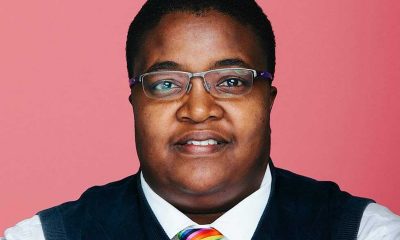
 Africa4 days ago
Africa4 days agoProminent South African activist elected to country’s parliament
-
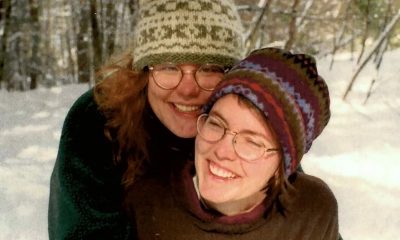
 Virginia3 days ago
Virginia3 days agoSuspect in 1996 murder of lesbian couple in Shenandoah National Park identified

